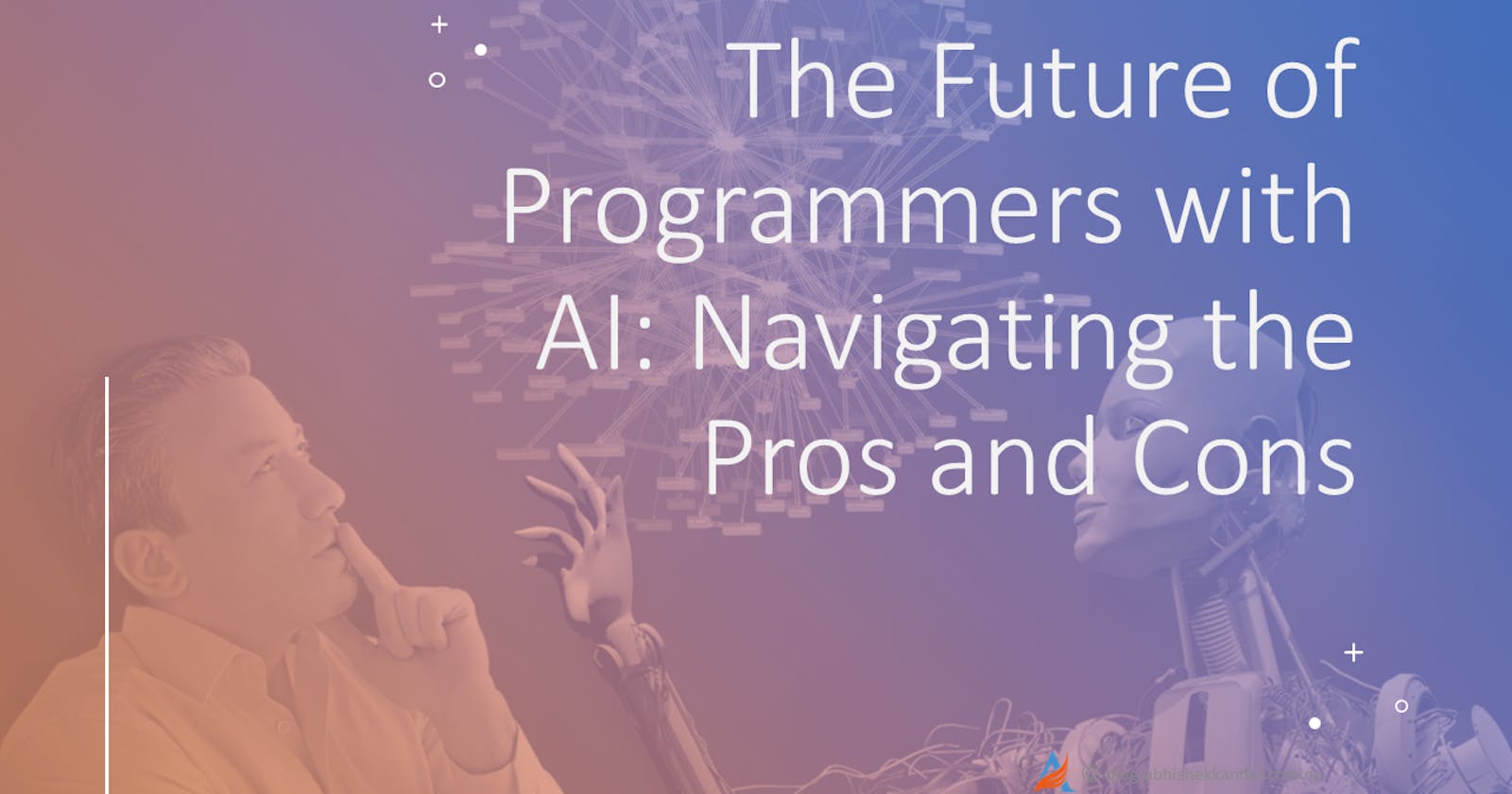The Future of Programmers with AI: Navigating the Pros and Cons
Exploring the Opportunities and Challenges of AI Integration in Programming
Introduction
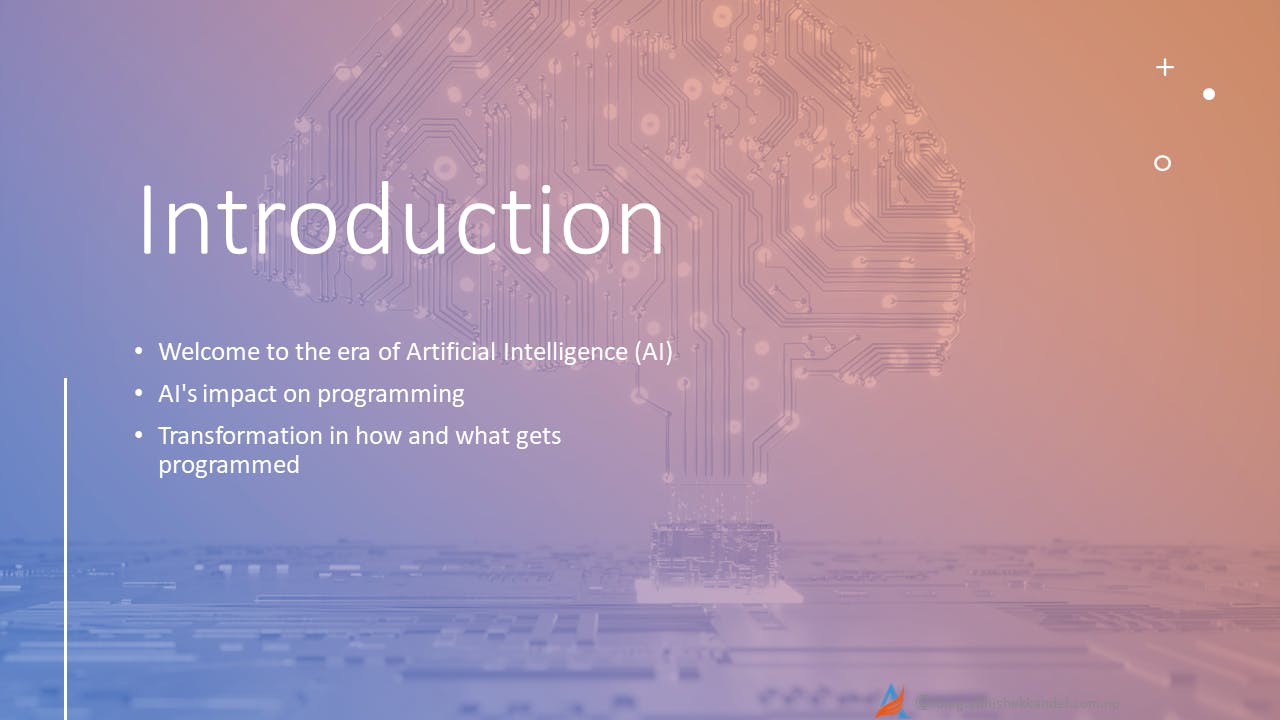
Welcome to the era of Artificial Intelligence (AI) where academic and professional fields are experiencing a shift in the way things are done. In programming, AI is transforming not only how but also what gets programmed. From coding simple chatbots to complex problem-solving systems, AI is impacting how programmers develop software.
One of the major impacts of AI in programming is the way it delivers productivity, accuracy, and precision to programmers. By handling the simple, mundane tasks, AI frees up time for programmers to focus on more complex ones. However, with the increasing role of AI in programming, there are concerns around job loss for programmers.
The future of programmers who embrace AI is bright, rather than bleak. It means collaboration and upskilling, beyond the traditional way of programming. The combination of AI and the programmer’s expertise will lead to the creation of powerful, efficient, and effective software systems to solve real-world problems.
Are you ready to navigate the future of programming with AI? Keep reading!
Pros of AI in Programming
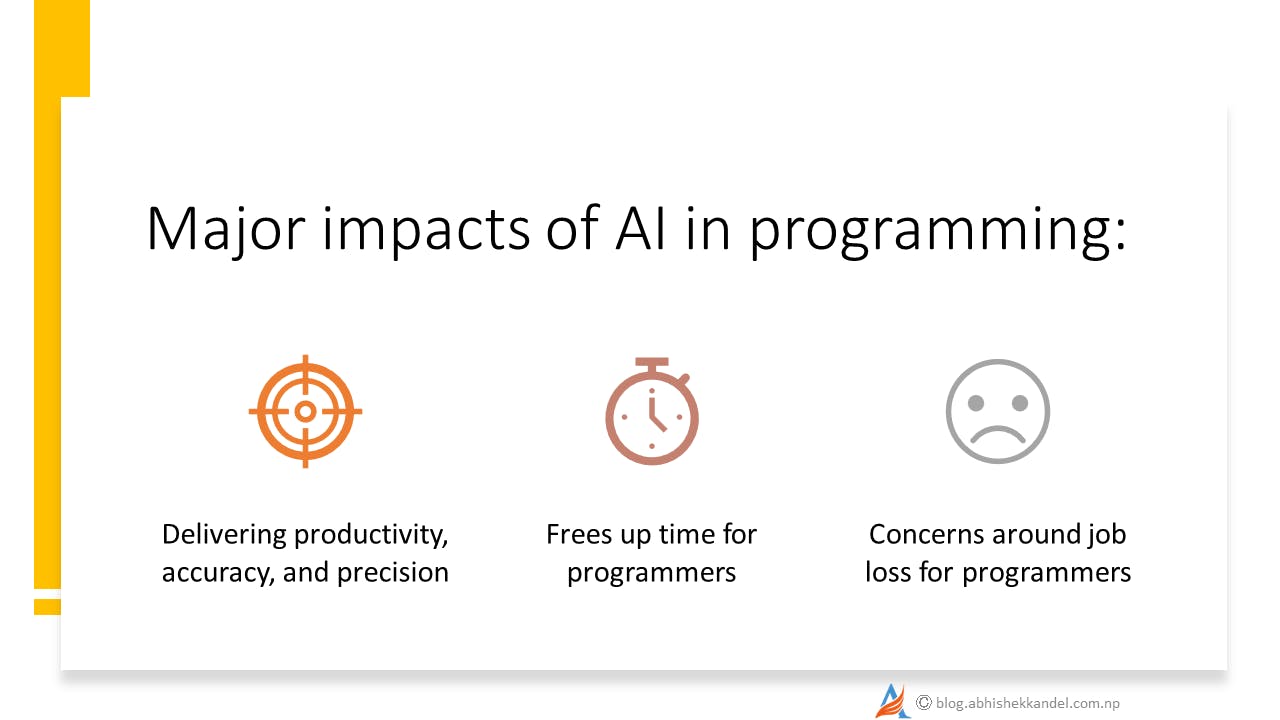
As AI continues to make an impact on various industries and fields, it is no surprise that it is now influencing programming. The use of AI technology in programming has various benefits, one of which includes increased productivity and efficiency. Programmers can use AI to automate repetitive tasks, which in turn frees up time for them to work on more complex tasks. This results in higher productivity and efficiency levels.
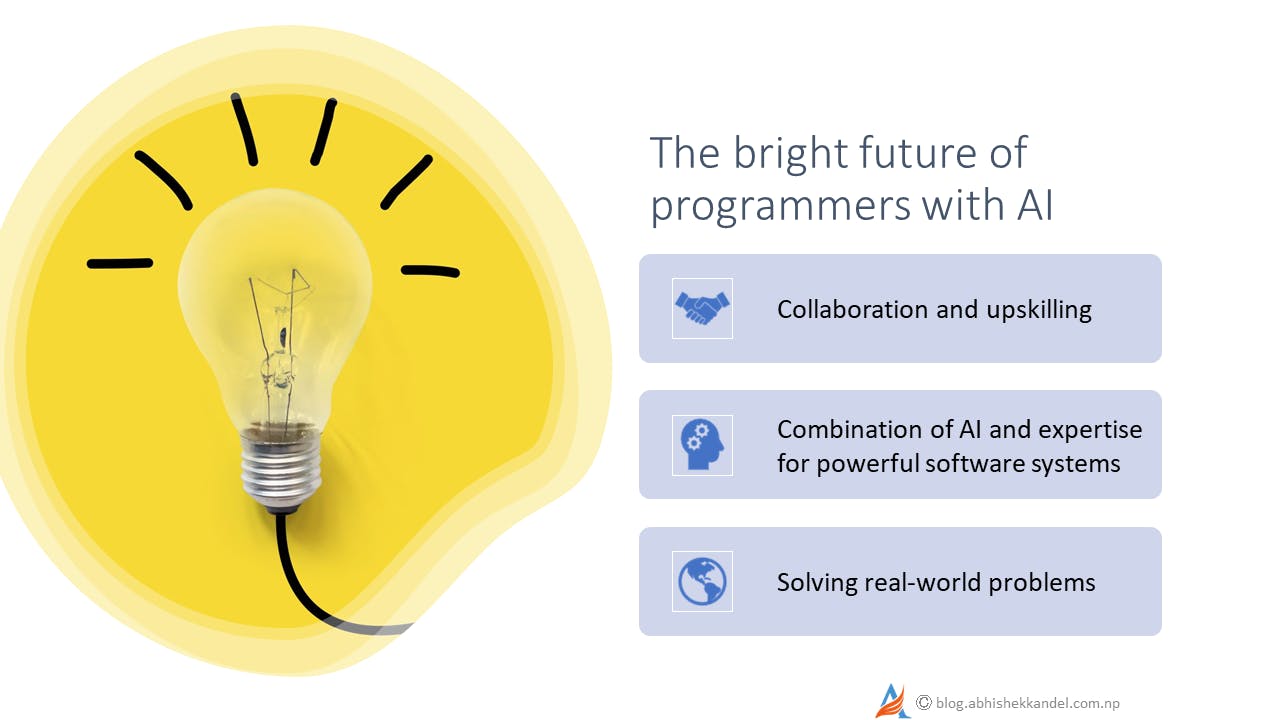
With AI, there is an improvement in accuracy and precision. This is because AI can detect errors more quickly and accurately than humans. The use of AI technology also leads to a reduction in errors, and debugging time. This enables programmers to complete tasks faster and increase their output.
Another benefit of AI in programming is its ability to enable the exploration of complex problems. AI systems can analyze large amounts of data and provide insights that would be difficult for humans to discover. With this technology, programmers can work on more complex problems that would otherwise be too time-consuming or impossible to solve.
The use of AI in programming is not without its challenges, but the benefits outweigh the disadvantages. As programmers navigate the future with AI, they will have to deal with issues like the possibility of losing jobs to AI. However, as AI systems continue to evolve, they will need programmers to manage and operate them. There is also the possibility of dependence on AI for programming, but this issue can be addressed through the upskilling and reskilling of programmers.
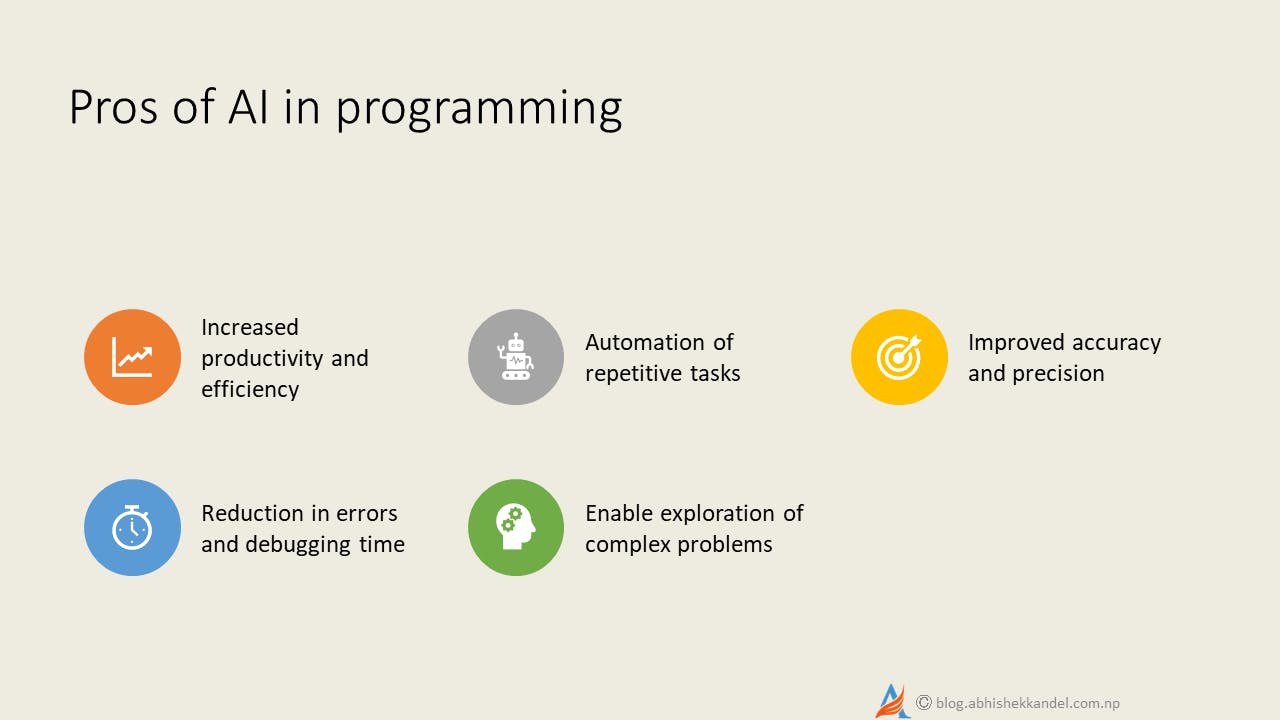
In conclusion, the use of AI in programming has significant benefits that outweigh the challenges it poses. As programmers navigate this new era, they must understand the impact of AI on their industry and take measures to develop their skills accordingly. The future of programming with AI is exciting and full of potential, and programmers must be prepared to embrace the changes that come with it.
Cons of AI in Programming
Let’s start with the elephant in the room- the cons of AI in programming. While it’s true that AI promises to change the face of programming, there are some potential drawbacks that need to be addressed.
Firstly, let’s discuss the loss of jobs for programmers and developers. With AI’s ability to automate and optimize programming tasks, it’s inevitable that some jobs will be replaced by intelligent machines. However, this doesn’t necessarily have to be a bad thing. Programmers can use this as an opportunity to focus on more strategic and creative tasks, while leaving the repetitive and mundane tasks to the AI.
Another thing to consider is the possibility of dependence on AI for programming. While AI can make programming more efficient and productive, it can also make developers overly reliant on its capabilities. This can lead to a lack of innovation, as developers may be less likely to approach problems in new and unique ways.
The inability of AI to think outside the box is also a concern. While AI has the ability to analyze data and provide insights, it lacks the human element of creativity and intuition. This means that humans are still necessary when it comes to tackling complex and nuanced problems.
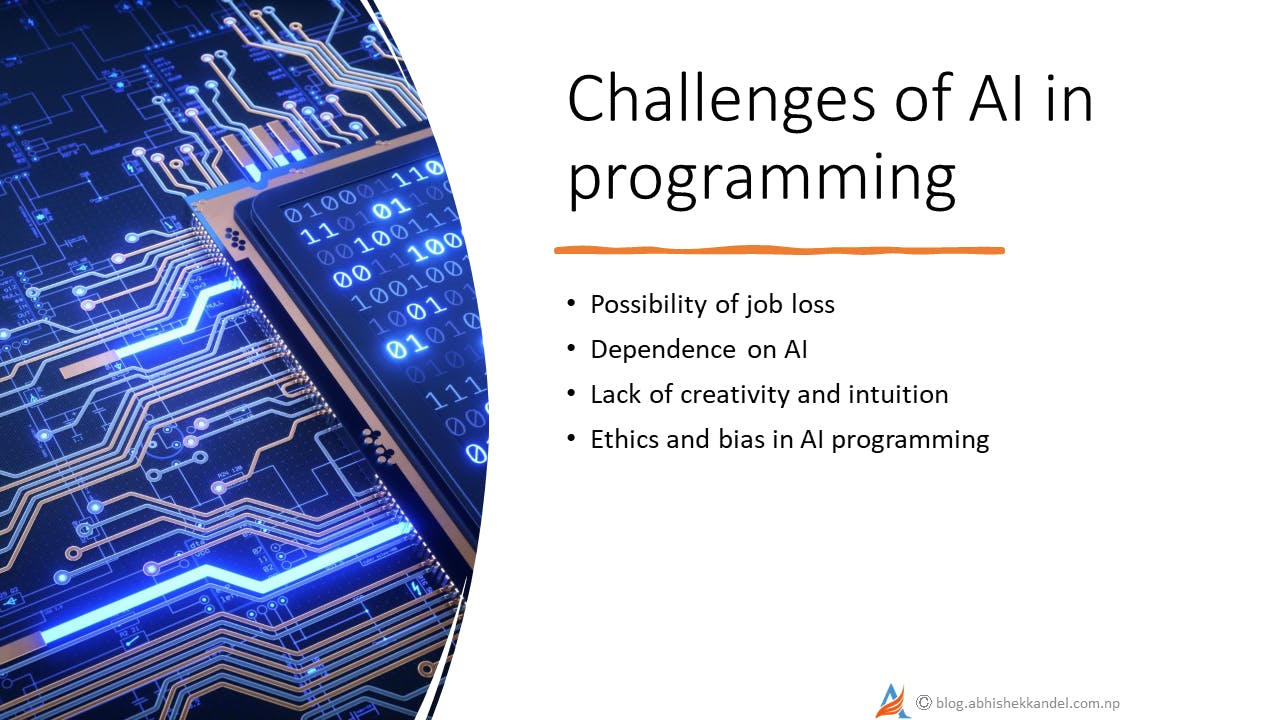
Finally, there’s the issue of ethics and bias in AI programming. Since AI is only as good as the data it’s trained on, there’s a risk of perpetuating biases and discrimination. It’s important for programmers to take a proactive approach to ensure that their AI systems are ethical, inclusive, and unbiased.
Overall, it’s clear that there are both pros and cons to AI in programming. While the cons shouldn’t be ignored, they also shouldn’t overshadow the potential benefits of AI. By embracing the changing landscape of programming and finding ways to collaborate with AI, programmers can position themselves for success in the future.
